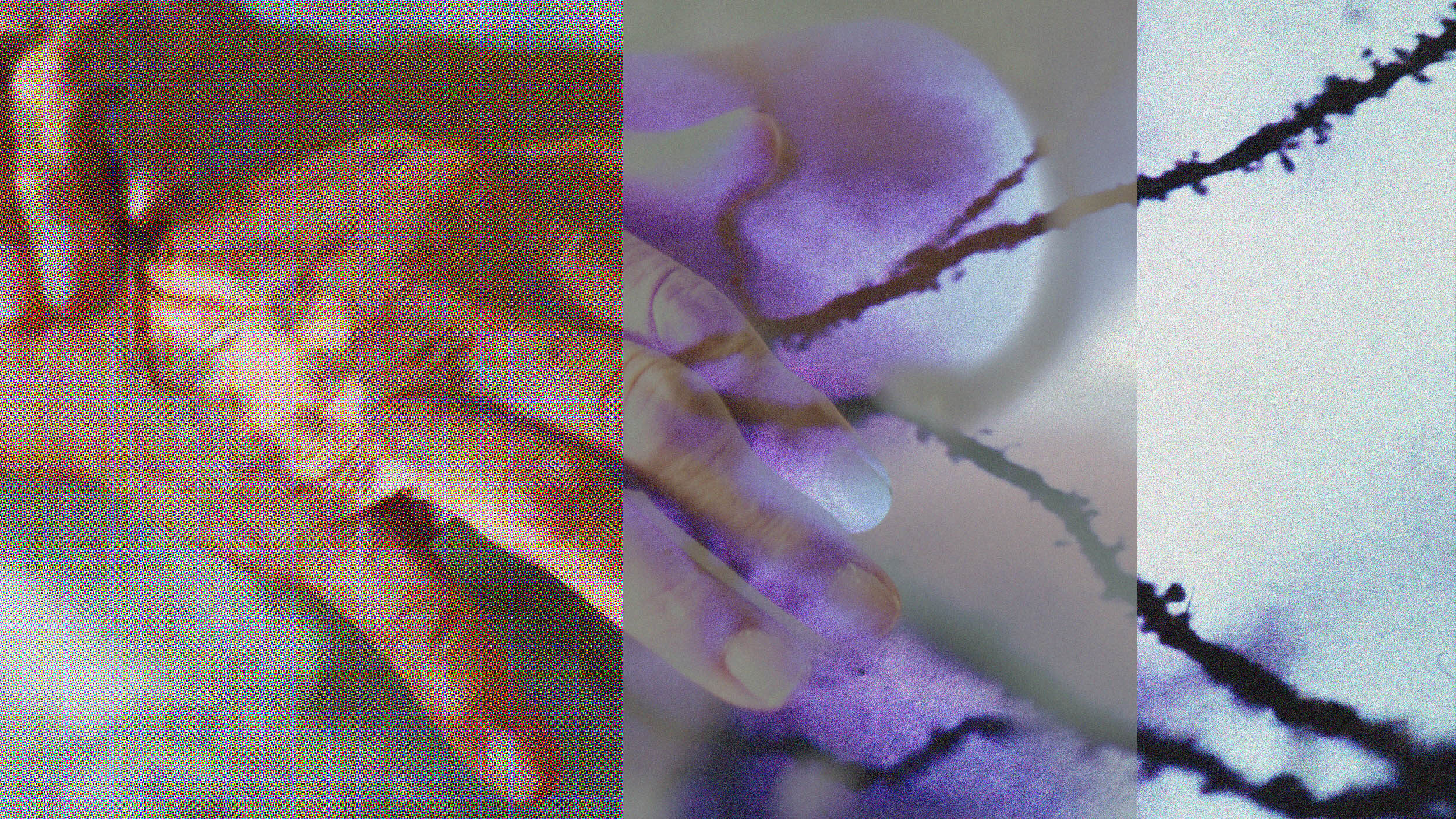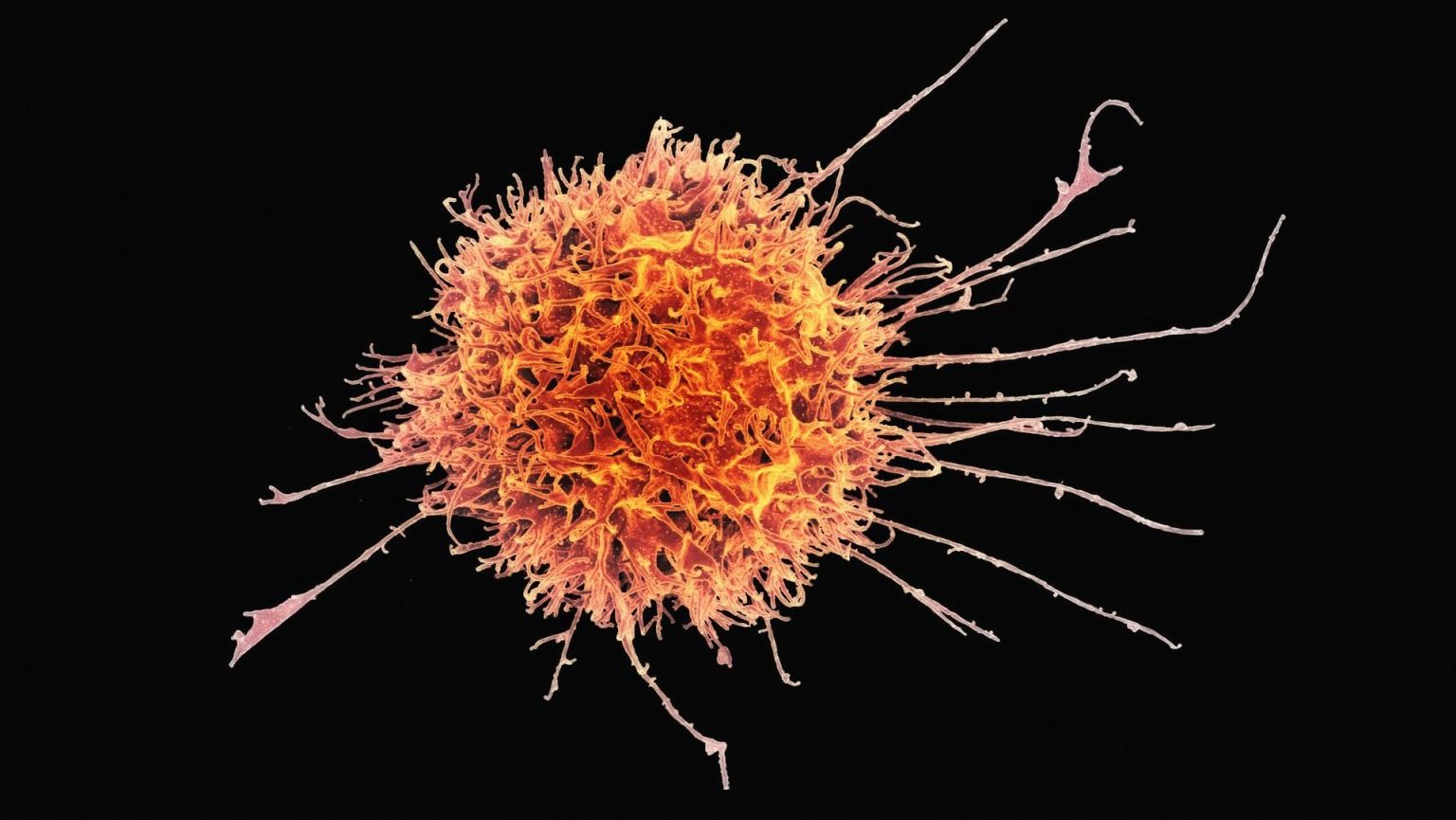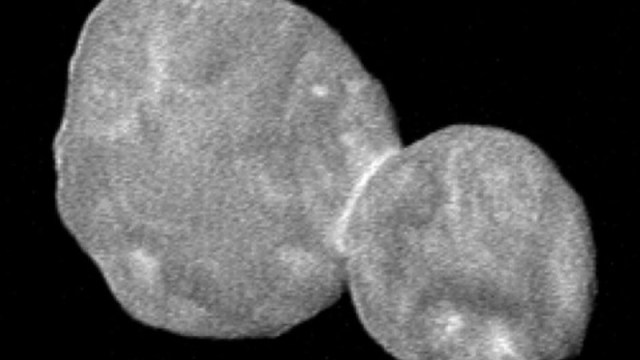Scientists may have found a way to kill cancer cells without chemotherapy

A nurse is working in a room where patients undergo chemotherapy treatment, on February 6, 2013, at the Oscar Lambret Center in Lille, northern France, a regional medical unit specializing in cancer treatment, which is part of Lille regional hospital. (Photo: Philippe Huguen/AFP/Getty Images)
- Researchers at Northwestern have discovered a genetic “kill code” that might enable the destruction of cancer cells.
- This novel new therapy “downstream” of chemo might destroy cancer cells without affecting the body’s immune system.
- While no animal trials have been conducted, this potential therapy could signal the demise of chemotherapy.
One of the biggest criticisms about our current approach to treating cancer is chemotherapy. Critics liken it to dropping a bomb on a village instead of singling out homes of bad actors. War metaphors are impossible to avoid when discussing cancer, for good reason: It is an all-out assault on your body.
When I went through testicular cancer, I was given three options: Since it had not metastasized, do nothing after surgery and monitor; two weeks of radiation therapy (which often leads to another cancer down the road); one round of chemotherapy, mostly as a preventive measure. I chose the latter.
Even my oncologist knew it wasn’t an ideal solution. As with much of medicine, you go with what’s best until something better is discovered. Chemotherapy is an umbrella term with numerous dosages and drugs in the various courses. My one round was on the mild side; a close friend had 12 rounds in four months while battling a much more aggressive intestinal cancer. His immune system needed serious rebuilding after that incident.
While there are many applications and complications associated with chemotherapy, the commonly understood mechanism is the paralyzing of bone marrow, which leads to lower amounts of red and white blood cells and platelets. This results in the depression of your immune system. Along with the suppression and cessation of growth of cancer cells, numerous important cells are also damaged, stressed, or destroyed. In very aggressive cancers, bone marrow stem cells are obliterated and must be replaced.
Making cancer as harmless as the common cold | Michio Kaku
For most people, it’s time and healing. Destroy your immune system, rest, eat well, and exercise to the degree you can to keep blood flowing. While not ideal, it works for many. Billions of dollars are spent each year searching for better means of fighting this disease. A new course of action shows promise that one day, chemotherapy too might be a practice of the past.
Published in the journal Nature Communications, researchers at Northwestern University have discovered a genetic “kill code” that could enable the destruction of cancer cells without the “spray and pray” mentality of chemotherapy.
The hardest part of cancer research thus far has been finding a way to destroy cancer cells without affecting the rest of the body’s networks. In 2017, a team led by Marcus E Peter, a professor at Northwestern’s Feinberg School of Medicine, discovered that every cell in our body has a unique code that can trigger cell death. His team did not understand how to switch that code on, however.
Bringing us to the current study, also led by Peter. As Lisa Schönhaar and Ruqayyah Moynihan write for Business Insider:
According to the new study, the code is available as information in ribonucleic acid, or RNA, and microRNAs. The small RNA molecules can effectively kill cancer cells, a process that chemotherapy is meant to activate.

Photo: Anne-Christine Poujoulat/AFP/Getty Images
Testing this method on four cell lines, two human and two mouse, the team identified over 700 targets leading to cancer cell proliferation. They found that chemotherapy drugs kill cancer cells in part by triggering the release of a toxic mechanism, resulting in the release of tumor-suppressive miRNAs. By targeting this specific mechanism, they believe they might be able to trigger this action without the complications posed by current genotoxic drugs.
As Peter commented on the study:
“Now that we know the kill code, we can trigger the mechanism without having to use chemotherapy and without messing with the genome… My goal was not to come up with a new artificial toxic substance. I wanted to follow nature’s lead. I want to utilize a mechanism that nature developed.”
Unfortunately, such an application is years away. The team has yet to conduct a single animal trial. That said, Peter hopes to turn this knowledge into a “novel form of therapy.” One major problem with chemotherapy, Peter says, is that since it triggers the release of toxic RNAs, secondary cancers can result as a consequence. The new potential therapy his team is developing is “downstream” of chemo and may avoid the side effects of destroying an entire immune system.
As with all breakthrough drugs, numerous studies will have to be conducted. But the time spent might be worth it, if this kill code can be put into action.
—
Stay in touch with Derek on Twitter and Facebook.





